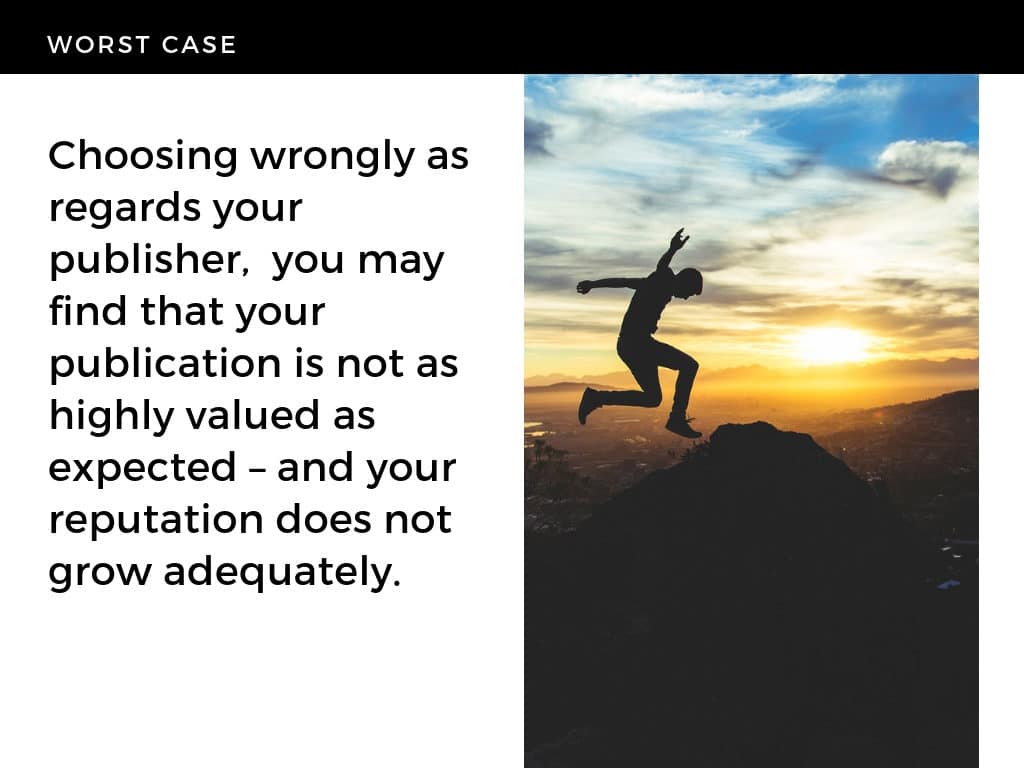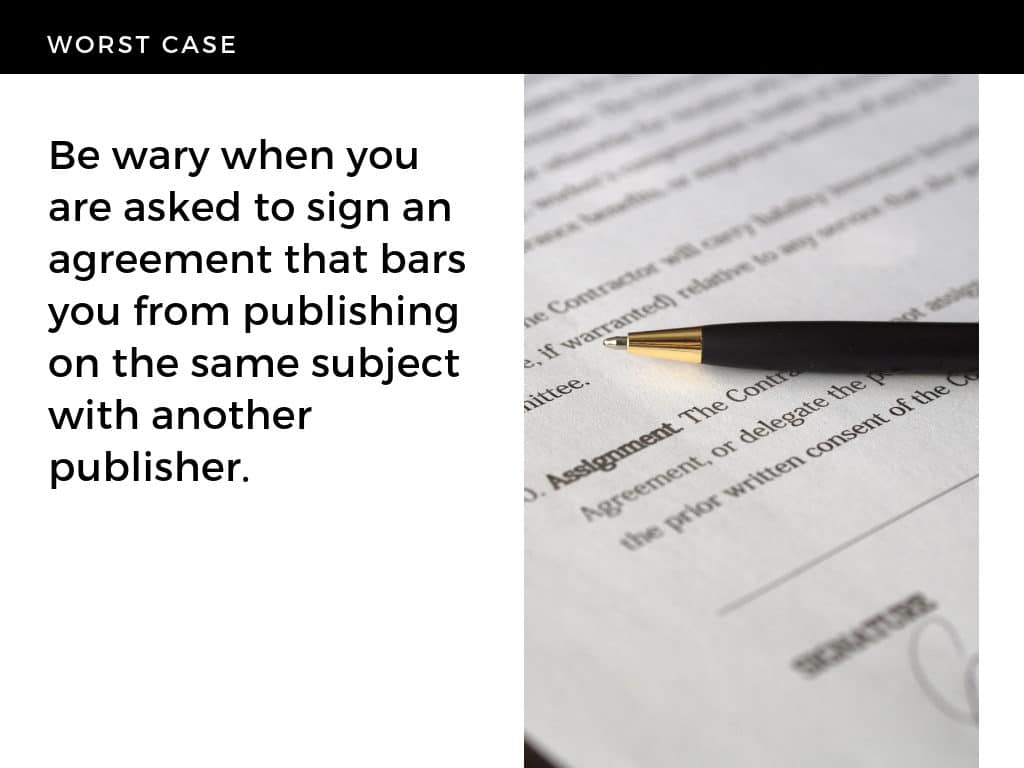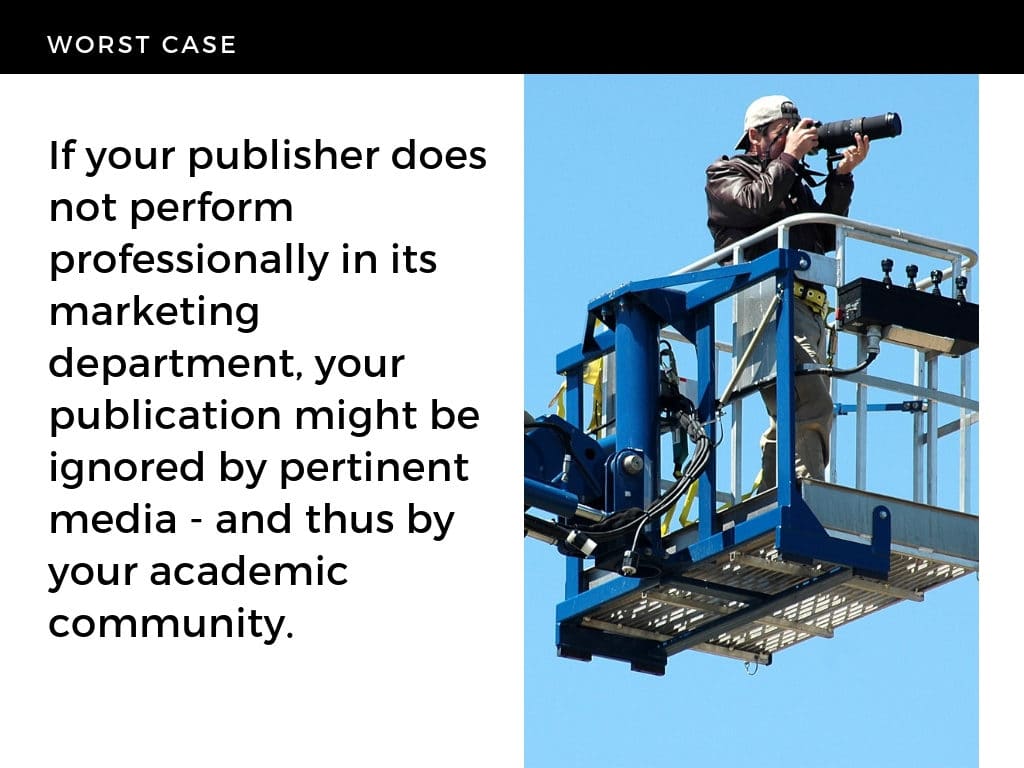In academic publishing there are a few traps, inexperienced authors may stumble upon. Below you find three of the most common footfalls, and tips how to avoid them.
1. Choosing the wrong publishing partner
 If you want to make sure to receive the reputation you deserve for your publication, you need to choose the right publisher. You need a publishing house with a good reputation in your field. Some universities and institutions offer lists of pertinent publishers, complete with evaluations or even credit points. If this is the case with your institution, you have a first point of reference. However, you still need to have a look for yourself whether the system suggested makes sense for you and your specific publication.
If you want to make sure to receive the reputation you deserve for your publication, you need to choose the right publisher. You need a publishing house with a good reputation in your field. Some universities and institutions offer lists of pertinent publishers, complete with evaluations or even credit points. If this is the case with your institution, you have a first point of reference. However, you still need to have a look for yourself whether the system suggested makes sense for you and your specific publication.
A “good” academic publisher features the following characteristics:
- It features a carefully compiled list of publications,
- the publisher is present at pertinent conferences,
- it provides regular and reliable information about its new publications and the company,
- and works professionally with pertinent media.
2. Focussing on unimportant stuff
 It is not easy to find your way through the jungle of terms and conditions regarding your publication. Who knows what approriate article or book processing charges for open access publications look like these days? And why do not all publishers offer gratis copies of my own book to me? However, cheapest offers may not be the best you can get for yourself.
It is not easy to find your way through the jungle of terms and conditions regarding your publication. Who knows what approriate article or book processing charges for open access publications look like these days? And why do not all publishers offer gratis copies of my own book to me? However, cheapest offers may not be the best you can get for yourself.
So make sure you talk to your publishing partner. Make sure you know what to expect particularly as regards the following points:
- number of author’s free copies – we still provide 10 free copies for monograph author(s), and 6 for editors of collections, one each for the contributors;
- royalties: for text books: about 5% of revenue; for research publications: 5% as of a second edition;
- technicalities: text books: finalized manuscript; research publications: crc (camera-ready copy) according to our standards;
- publisher’s editorial work: text books: peer reviews and copy-editing; research publications: peer reviews and feedback from our editorial staff;
- media relations: although not usually part of the agreement, make sure that you and your publisher cooperate on making your book known, and that there are free review copies on offer;
- book processing charges: if you want or need to publish in open access, make sure you know what fees are expected, and whom you can approach in your institution to cover them. Also make sure you know the mandatory license, i.e., creative commons license, (if there is such a thing with your institution) for your open access publication.
3. No idea of who does what
Your publication is meant to help you build your reputation. Thus, you need to point to your publication(s) whenever you get a chance to do so. So, start giving thought to who should know about your publication. Talk to your publishing partner about whom to inform when using what. Have them prepare professional publicity leaflets for you that you can distribute at your next conference, and draw attention to during your next speech. Use the signature of your e-mail to promote your most recent publication.

It is your publisher’s job to mention your publication on its website, at booths during conferences, in its catalogues as part of the entire list of publications.
It is your job to inform your own academic network on a smaller, yet deeper basis: noone is more deeply entrenched in those pertinent networks than you are. And thus, noone is better suited to make your work known.
Naturally, we do a lot, and are very happy to support your efforts when we cooperate. Feel free to get in touch.